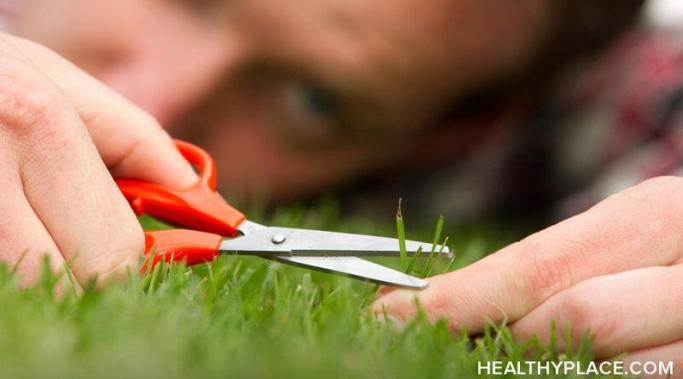Blogs
In the video below, I’ll talk about my experience of feelings of shame and borderline personality disorder, as well as some tips for coping with the shame within borderline personality disorder.
Myths about parenting a child with mental illness are harmful, so let's straighten some of them out. If your child struggles with mental illness, you've faced judgment and unsolicited advice from almost everybody. None of it compares to the judgment and fear we heap on ourselves. It's easy to get dragged down by ignorance and stigma. Debunking common myths, then, may make the journey through parenting a child with mental illness a little easier.
Smartphones can affect our mental health in both negative and positive ways, but lessening screen time can help create more bliss. Our technology can be great for connecting with remote friends and family, keeping up with the news, learning, or convenient shopping. However, smartphones can also become a source of anxiety: we can fear we’re missing out, put ourselves into a downward spiral of social media and news negativity, or constantly work rather than taking much-needed rest. Screen time before bed can also make sleeping difficult and lack of sleep negatively impacts mental health.
You probably should expect less from people because people are going to disappoint you. Let me repeat that. People are going to disappoint you. This is a widely understood truth in the world and applies to everyone. For those of us with mental illness, the dynamic changes a little bit. Here is why we should expect less from people and why we shouldn't.
Tonight I was reminded that the emotional flashbacks of complex posttraumatic stress disorder (C-PTSD) are ever present in my life. I was sitting in bed snuggled up next to my golden retriever, Miles. I could hear my daughter in the living room singing to the songs playing through her earbuds. The louder she sang, the more I felt like I was about to come out of my skin. I just wanted to scream "Shut up." The thing is though, when I stopped to think about why her singing was flipping me out, I realized it wasn't about her singing at all. I was actually dealing with one the hallmarks of C-PTSD -- an emotional flashback.
Developing a personal ritual to reduce anxiety is a pleasant, meaningful way to reclaim yourself and your life from anxiety's grasp. Ritual is often associated with religion, rites, ceremonies, and formal procedures, which isn't incorrect but is also incomplete. An anxiety-reducing ritual is different. Think of it as a routine with punch: special time that you give yourself for a positive purpose. Let's explore the amazing things rituals can do for your life as well as nine things to add to a ritual to reduce anxiety.
Perfectionism and low self-esteem are intricately related. It took me a while to realize I was a perfectionist. And even when I was aware of my tendency to want everything to be perfect, I never saw it as a problem. Struggling to accept mistakes and flaws, and being extremely self-critical, were just some idiosyncrasies I had. But over time, I began to see how my inability to deal with imperfections was impacting my mental health. I could not forgive myself for errors; I would obsess over mistakes and regrets; I held myself to incredibly high standards -- and would be crushed when those standards weren’t met. My perfectionism was creating low self-esteem.
When you’re anxious, don't give up. Sometimes you just feel bad – oftentimes you don’t even know why you feel as bad as you do. Those can often be the worst days because if you don’t know where the bad feeling is coming from, it can seem impossible to control.
Have you considered practicing mindfulness after a meal? In eating disorder recovery, mindfulness is a coping skill that's generally considered useful during a meal, but practicing mindfulness after a meal can be just as effective. Regardless of what stage you're at in the recovery process, there are still many complex emotions which can tend to surface after consuming a meal, and when they do make an appearance, it's important to equip yourself with a game plan to address those feelings constructively. This is where practicing mindfulness after a meal may help you.









